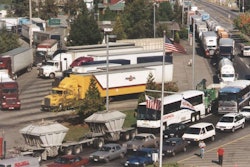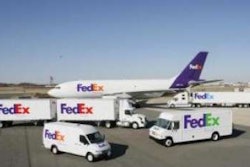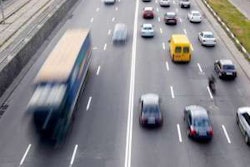The American Logistics Aid Network is partnering with Feeding America member food bank the Greater Chicago Food Depository and the Material Handling Industry of America to build food boxes for emergency response. At the ProMat 2011 Expo, scheduled for March 21-24 at Chicago’s McCormick Place, show attendees will have the opportunity to gain hands-on experience with disaster relief operations. Visitors to the ALAN booth will navigate a specially constructed assembly line to fill a kit with food items to aid a family during a crisis.
“We are so grateful for the support of the American Logistics Aid Network,” says Kate Maehr, executive director and chief executive officer of the Greater Chicago Food Depository. “This donation arrives at a time when we are serving record numbers of people at pantries, soup kitchens and shelters in Cook County. It takes the coordinated efforts of partners like American Logistics Aid Network to put food on the table for people in need.”
Grocery and material handling manufacturers from across the country have offered their assistance. Organizations like Campbell Soup Co., CHEP, Con Agra, Del Monte, International Paper, Tri-Boro, Tri-Factor Distribution Solutions and Unex all have volunteered products and expertise to complete this project. ALAN is hoping to build about one-half truckload of the family kits.
“MHIA is proud to be an organizing sponsor of ALAN and to help present its important work to the tens of thousands of visitors to ProMat 2011,” says John Nofsinger, CEO of MHIA. “ALAN has provided the supply chain community a framework to come together in ways that none of the current 18 sponsors could do alone to make an important contribution to this nation’s ability to efficiently and effectively respond to disasters.”
ALAN works with supply chain professionals to connect available resources to needs generated by disaster response organizations such as Feeding America. Many of these organizations pre-stage materials so that they can respond rapidly when disasters occur. As part of their 2011 education efforts, ALAN is encouraging the supply chain community to develop partnerships with relief organizations in their communities. Establishing these public-private partnerships fosters community resiliency and provides opportunities for employee participation in socially responsible causes.
“The impact on and recovery rate of supply chains after an extreme event often defines the magnitude of a disaster,” says Jock Menzies, ALAN president. “Avoiding long-term economic and demographic trauma requires the engagement of the authority, resources, structures and capacities from the government, nonprofit and private sectors. FEMA terms it ‘whole of community,’ where everyone has a role to play in disaster response.”












